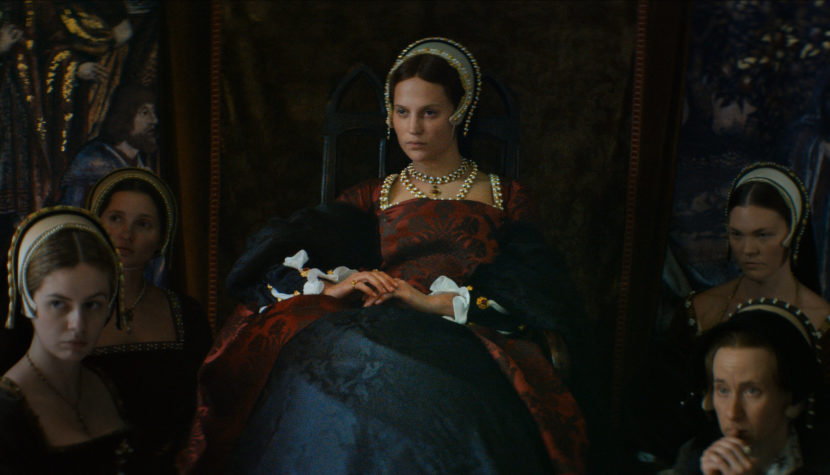FIREBRAND. Throne of Blood [REVIEW]

If you turn a blind eye to the cyclical executions on the guillotine, a weakness for torture, rape as a method of consummating a relationship and obscene manners, Henry VIII (Jude Law) could actually be a prince charming for his sixth wife, Catherine Parr (Alicia Vikander). The previous five had left a bunch of children and severed heads, probably eaten by pigs. Surely many envy them anyway how close they were to the throne. Catherine does not have the noose around her neck yet, but as regent during the king’s war expeditions, she tries to take care of the people, at least to a small extent. React to the decimating epidemic and convince the court that the Protestants were not so wrong in their beliefs. However, it will take a few steps too much. Meanwhile, the rightful ruler returns to the country prematurely.
The royal castle, in the view of Karim Aïnouz, is a scene for an extraordinary gothic horror. Covered by night, thick fog and treetops, it is a haven of evil, corruption and pathologies of all kinds. The director, of course, reaches for historical figures and problems digesting the Tudor era, but Firebrand can be read just as comfortably as a genre thriller about a woman trapped in a psychopath’s house. The stifling visual setting, the sense of danger built at every step (even the slightest slippage can find a punch line in decapitation), dungeon scenes where the torturer keeps his victims and the embarrassing feeling of being constantly watched work for this. Jude Law vividly portrays Henry VIII, a despot and ruthless criminal. When he talks to someone, he holds the interlocutor by the throat. Children are worth no more than worms crushed under the shoe and shameless contempt is the dominant feeling that directs to Catherine.
This acting charge and love of exaggeration could offend, but the chosen thriller convention justifies such an image of the English king. In Jude Law’s interpretation, Henry VIII has the temper and impetuousness of Tommy in Goodfellas and the brutality of Max Cady in Cape Fear. Petite and filigree Alicia Vikander does not disappear in his shadow. Catherine Parr has to tread carefully, not reveal her intentions and fight not only to preserve her own surroundings, but also for a few closest and most trusted ones. She is probably the only one with the ability to deceive Henry VIII and distract him. Nevertheless, in every dialogue, even one wrongly chosen word or ambiguous grimace can end with a death sentence. Vikander uses other means of expression and a more subtle acting method, but his technique is equal to that of the loud Jude Law.

Related:
For lovers of court intrigues and “portraits of the era” Firebrand will also be a specific proposition. The aura of a religious war between Catholics and Protestants is still in the air. The followers of Luther have in their weapons only the conviction that they are preaching the truth about faith. The king’s supporters sharpened swords. Only one side hopes for a final in the form of diplomatic negotiations. Fabrication of evidence, searches and blackmail are everyday things for the royal entourage. Feasts and games in the gardens are grounds for betrayal and tracking spies. Welcome to a land shrouded in shadow, criss-crossed by rivers of spilled blood.
Firebrand is a dense, dark and gloomy detective story. About the corruption of power and the heartlessness of faith. Uncompromising in image and brutal in word. On a textual level, it’s a story about putting up bars and plunging into hopelessness and corruption. Karim Aïnouz certainly requires from the viewer patience in looking for the light in the tunnel and appropriate sensitivity. Not everyone can take such a dose of film suffering. However, those who appreciate stories of a lamb surrounded by wolves should feel at home in Henry VIII’s court.





